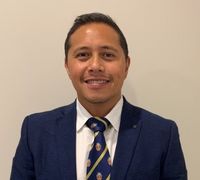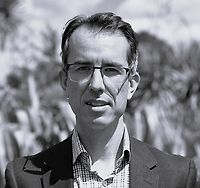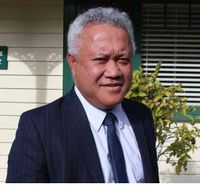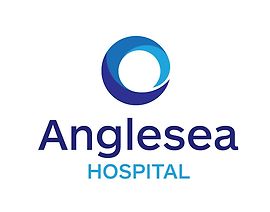Waikato > Private Hospitals & Specialists > Evolution Healthcare >
Anglesea Hospital - Endoscopy
Private Surgical Service, Endoscopy (Gastroenterology), General Surgery
Description
Anglesea Hospital is a state-of-the-art hospital and day stay facility located in the heart of Hamilton.
- Four state-of-the-art theatres designed and built to international standards which have the latest digital equipment, enabling surgeons better visualisation during complex minimally invasive surgical procedures.
- 3D imaging solution which provides improved speed, accuracy and precision for surgical procedures.
- Innovative designs in movable equipment eliminating permanent fixtures and lessening the risk of infection during procedures.
- Highly experienced registered nursing staff committed to providing patients with the very best in preoperative, intraoperative and postoperative care
- Fully equipped Central Sterile Supply Department (CSSD) staffed by fully qualified CSSD Technicians, providing sterile equipment for all procedures.
- Ongoing monitoring by an Infection Control Nurse to ensure excellent Infection Control management
- Training room for live streaming of laparoscopic surgery for specialists from all over New Zealand.
Consultants
-

Mr Damien Ah Yen
General Surgeon
-
Mr Grant Christey
General Surgeon
-

Mr Jesse Fischer
General Surgeon
-

Mr Simi Lolohea
General Surgeon
-

Mr Jasen Ly
General Surgeon
-

Mr Nick Smith
General Surgeon
-

Mr Linus Wu
General Surgeon
Fees and Charges Categorisation
Fees apply
Procedures / Treatments
Colonoscopy is the examination of your colon (large bowel) using a colonoscope (long, flexible tube with a camera on the end). The colonoscope is passed into your rectum (bottom) and then moved slowly along the entire colon, while images from the camera are displayed on a television monitor. The procedure takes from 10 minutes to an hour. Sometimes a small tissue sample (biopsy) will need to be taken during the procedure for later examination at a laboratory. A colonoscopy may help diagnose conditions such as polyps (small growths of tissue projecting into the bowel), tumours, ulcerative colitis (inflammation of the colon) and diverticulitis (inflammation of sacs that form on the walls of the colon). Colonoscopy may also be used to remove polyps in the colon. Risks of a colonoscopy are rare but include: bleeding if a biopsy is performed; allergic reaction to the sedative; perforation (tearing) of the bowel wall. What to expect It is important that the bowel is completely empty before the procedure takes place. This means that you will only be able to have liquids on the day before, and will probably have to take some oral laxative medication (to make you go to the toilet more). When you are ready for the procedure, you will be given medication (a sedative) to make you go into a light sleep. This will be given by an injection into a vein in your arm or hand. The colonoscopy will usually take 15 – 30 minutes, but you will probably sleep for another 30 minutes. Because you have been sedated (given medication to make you sleep) it is important that you arrange for someone else to drive you home. Some patients may experience discomfort after the procedure, due to air remaining in the colon.
Colonoscopy is the examination of your colon (large bowel) using a colonoscope (long, flexible tube with a camera on the end). The colonoscope is passed into your rectum (bottom) and then moved slowly along the entire colon, while images from the camera are displayed on a television monitor. The procedure takes from 10 minutes to an hour. Sometimes a small tissue sample (biopsy) will need to be taken during the procedure for later examination at a laboratory. A colonoscopy may help diagnose conditions such as polyps (small growths of tissue projecting into the bowel), tumours, ulcerative colitis (inflammation of the colon) and diverticulitis (inflammation of sacs that form on the walls of the colon). Colonoscopy may also be used to remove polyps in the colon. Risks of a colonoscopy are rare but include: bleeding if a biopsy is performed; allergic reaction to the sedative; perforation (tearing) of the bowel wall. What to expect It is important that the bowel is completely empty before the procedure takes place. This means that you will only be able to have liquids on the day before, and will probably have to take some oral laxative medication (to make you go to the toilet more). When you are ready for the procedure, you will be given medication (a sedative) to make you go into a light sleep. This will be given by an injection into a vein in your arm or hand. The colonoscopy will usually take 15 – 30 minutes, but you will probably sleep for another 30 minutes. Because you have been sedated (given medication to make you sleep) it is important that you arrange for someone else to drive you home. Some patients may experience discomfort after the procedure, due to air remaining in the colon.
Colonoscopy is the examination of your colon (large bowel) using a colonoscope (long, flexible tube with a camera on the end). The colonoscope is passed into your rectum (bottom) and then moved slowly along the entire colon, while images from the camera are displayed on a television monitor.
The procedure takes from 10 minutes to an hour. Sometimes a small tissue sample (biopsy) will need to be taken during the procedure for later examination at a laboratory.
A colonoscopy may help diagnose conditions such as polyps (small growths of tissue projecting into the bowel), tumours, ulcerative colitis (inflammation of the colon) and diverticulitis (inflammation of sacs that form on the walls of the colon).
Colonoscopy may also be used to remove polyps in the colon.
Risks of a colonoscopy are rare but include: bleeding if a biopsy is performed; allergic reaction to the sedative; perforation (tearing) of the bowel wall.
What to expect
It is important that the bowel is completely empty before the procedure takes place. This means that you will only be able to have liquids on the day before, and will probably have to take some oral laxative medication (to make you go to the toilet more).
When you are ready for the procedure, you will be given medication (a sedative) to make you go into a light sleep. This will be given by an injection into a vein in your arm or hand.
The colonoscopy will usually take 15 – 30 minutes, but you will probably sleep for another 30 minutes. Because you have been sedated (given medication to make you sleep) it is important that you arrange for someone else to drive you home.
Some patients may experience discomfort after the procedure, due to air remaining in the colon.
Disability Assistance
Wheelchair access, Wheelchair accessible toilet, Mobility parking space
Website
Contact Details
Anglesea Hospital
Waikato
-
Phone
(07) 957 4915
Email
Website
19 Knox Street
Hamilton Central
Hamilton
Waikato 3204
Street Address
19 Knox Street
Hamilton Central
Hamilton
Waikato 3204
Postal Address
PO Box 9077
Hamilton
Was this page helpful?
This page was last updated at 9:36AM on February 17, 2026. This information is reviewed and edited by Anglesea Hospital - Endoscopy.

